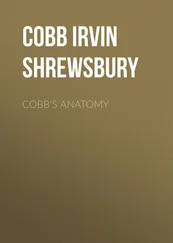Irvin Cobb - Europe Revised
Здесь есть возможность читать онлайн «Irvin Cobb - Europe Revised» — ознакомительный отрывок электронной книги совершенно бесплатно, а после прочтения отрывка купить полную версию. В некоторых случаях можно слушать аудио, скачать через торрент в формате fb2 и присутствует краткое содержание. Жанр: Путешествия и география, История, foreign_edu, foreign_antique, foreign_prose, на английском языке. Описание произведения, (предисловие) а так же отзывы посетителей доступны на портале библиотеки ЛибКат.
- Название:Europe Revised
- Автор:
- Жанр:
- Год:неизвестен
- ISBN:нет данных
- Рейтинг книги:3 / 5. Голосов: 1
-
Избранное:Добавить в избранное
- Отзывы:
-
Ваша оценка:
- 60
- 1
- 2
- 3
- 4
- 5
Europe Revised: краткое содержание, описание и аннотация
Предлагаем к чтению аннотацию, описание, краткое содержание или предисловие (зависит от того, что написал сам автор книги «Europe Revised»). Если вы не нашли необходимую информацию о книге — напишите в комментариях, мы постараемся отыскать её.
Europe Revised — читать онлайн ознакомительный отрывок
Ниже представлен текст книги, разбитый по страницам. Система сохранения места последней прочитанной страницы, позволяет с удобством читать онлайн бесплатно книгу «Europe Revised», без необходимости каждый раз заново искать на чём Вы остановились. Поставьте закладку, и сможете в любой момент перейти на страницу, на которой закончили чтение.
Интервал:
Закладка:
If I ever take that journey again I shall wear a smoke helmet and be comfortable. But always between tunnels there were views to be seen that would have revived one of the Seven Sleepers. Now, on the great-granddaddy-longlegs of all the spidery trestles that ever were built, we would go roaring across a mighty gorge, its sides clothed with perpendicular gardens and vineyards, and with little gray towns clustering under the ledges on its sheer walls like mud-daubers' nests beneath an eave. Now, perched on a ridgy outcrop of rock like a single tooth in a snaggled reptilian jaw, would be a deserted tower, making a fellow think of the good old feudal days when the robber barons robbed the traveler instead of as at present, when the job is so completely attended to by the pirates who weigh and register baggage in these parts.
Then—whish, roar, eclipse, darkness and sulphureted hydrogen!—we would dive into another tunnel and out again—gasping—on a breathtaking panorama of mountains. Some of them would be standing up against the sky like the jagged top of a half-finished cutout puzzle, and some would be buried so deeply in clouds that only their peaked blue noses showed sharp above the featherbed mattresses of mist in which they were snuggled, as befitted mountains of Teutonic extraction. And nearly every eminence was crowned with a ruined castle or a hotel. It was easy to tell a hotel from a ruin—it had a sign over the door.
At one of those hotels I met up with a homesick American. He was marooned there in the rain, waiting for the skies to clear, so he could do some mountain climbing; and he was beginning to get moldy from the prevalent damp. By now the study of bathing habits had become an obsession with me; I asked him whether he had encountered any bathtubs about the place. He said a bathtub in those altitudes was as rare as a chamois, and the chamois was entirely extinct; so I might make my own calculations. But he said he could show me something that was even a greater curiosity than a bathtub, and he led me to where a moonfaced barometer hung alongside the front entrance of the hotel.
He said he had been there a week now and had about lost hope; but every time he threatened to move on, the proprietor would take him out there and prove that they were bound to have clearing weather within a few hours, because the barometer registered fair. At that moment streams of chilly rain-water were coursing down across the dial of the barometer, but it registered fair even then. He said—the American did—that it was the most stationary barometer he had ever seen, and the most reliable—not vacillating and given to moods, like most barometers, but fixed and unchangeable in its habits.
I matched it, though, with a thermometer I saw in the early spring of 1913 at a coast resort in southern California. An Eastern tourist would venture out on the windswept and drippy veranda, of a morning after breakfast. He would think he was cold. He would have many of the outward indications of being cold. His teeth would be chattering like a Morse sounder, and inside his white-duck pants his knees would be knocking together with a low, muffled sound. He would be so prickled with gooseflesh that he felt like Saint Sebastian; but he would take a look at the thermometer—sixty-one in the shade! And such was the power of mercury and mind combined over matter that he would immediately chirk up and feel warm.
Not a hundred yards away, at a drug store, was one of those fickle-minded, variable thermometers, showing a temperature that ranged from fifty-five on downward to forty; but the hotel thermometer stood firm at sixty-one, no matter what happened. In a season of trying climatic conditions it was a great comfort—a boon really—not only to its owner but to his guests. Speaking personally, however, I have no need to consult the barometer's face to see what the weather is going to do, or the thermometer's tube to see what it has done. No person needs to do so who is favored naturally as I am. I have one of the most dependable soft corns in the business.
Rome is full of baths—vast ruined ones erected by various emperors and still bearing their names—such as Caracalla's Baths and Titus' Baths, and so on. Evidently the ancient Romans were very fond of taking baths.
Other striking dissimilarities between the ancient Romans and the modern Romans are perceptible at a glance.
Chapter V. When the Seven A.M. Tut-tut leaves for Anywhere
Being desirous of tendering sundry hints and observations to such of my fellow countrymen as may contemplate trips abroad I shall, with their kindly permission, devote this chapter to setting forth briefly the following principles, which apply generally to railroad travel in the Old World.
First—On the Continent all trains leave at or about seven A.M. and reach their destination at or about eleven P.M. You may be going a long distance or a short one—it makes no difference; you leave at seven and you arrive at eleven. The few exceptions to this rule are of no consequence and do not count.
Second—A trunk is the most costly luxury known to European travel. If I could sell my small, shrinking and flat-chested steamer trunk—original value in New York eighteen dollars and seventy-five cents—for what it cost me over on the other side in registration fees, excess charges, mental wear and tear, freightage, forwarding and warehousing bills, tips, bribes, indulgences, and acts of barratry and piracy, I should be able to laugh in the income tax's face. In this connection I would suggest to the tourist who is traveling with a trunk that he begin his land itinerary in Southern Italy and work northward; thereby, through the gradual shrinkage in weight, he will save much money on his trunk, owing to the pleasing custom among the Italian trainhands of prying it open and making a judicious selection from its contents for personal use and for gifts to friends and relatives.
Third—For the sake of the experience, travel second class once; after that travel first class—and try to forget the experience. With the exception of two or three special-fare, so-called de-luxe trains, first class over there is about what the service was on an accommodation, mixed-freight-and-passenger train in Arkansas immediately following the close of the Civil War.
Fourth—When buying a ticket for anywhere you will receive a cunning little booklet full of detachable leaves, the whole constituting a volume about the size and thickness of one of those portfolios of views that came into popularity with us at the time of the Philadelphia Centennial. Surrender a sheet out of your book on demand of the uniformed official who will come through the train at from five to seven minute intervals. However, he will collect only a sheet every other trip; on the alternate trips he will merely examine your ticket with the air of never having seen it before, and will fold it over, and perforate it with his punching machine and return it to you. By the time you reach your destination nothing will be left but the cover; but do not cast this carelessly aside; retain it until you are filing out of the terminal, when it will be taken up by a haughty voluptuary with whiskers. If you have not got it you cannot escape. You will have to go back and live on the train, which is, indeed, a frightful fate to contemplate.
Fifth—Reach the station half an hour before the train starts and claim your seat; then tip the guard liberally to keep other passengers out of your compartment. He has no intention of doing so, but it is customary for Americans to go through this pleasing formality—and it is expected of them.
Sixth—Tip everybody on the train who wears a uniform. Be not afraid of hurting some one's feelings by offering a tip to the wrong person. There will not be any wrong person. A tip is the one form of insult that anybody in Europe will take.
Читать дальшеИнтервал:
Закладка:
Похожие книги на «Europe Revised»
Представляем Вашему вниманию похожие книги на «Europe Revised» списком для выбора. Мы отобрали схожую по названию и смыслу литературу в надежде предоставить читателям больше вариантов отыскать новые, интересные, ещё непрочитанные произведения.
Обсуждение, отзывы о книге «Europe Revised» и просто собственные мнения читателей. Оставьте ваши комментарии, напишите, что Вы думаете о произведении, его смысле или главных героях. Укажите что конкретно понравилось, а что нет, и почему Вы так считаете.












